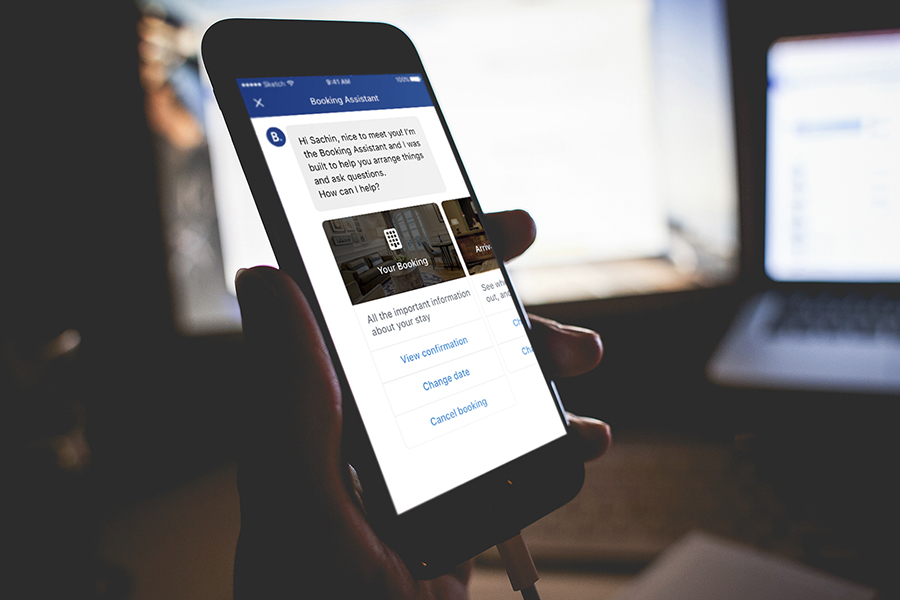Industry Focus
The Bespoke Customer Experience: How Booking.com is Using AI to Make Travel Personal
The travel industry has been pushing the idea of personalisation for decades, but it is only with AI that it is truly becoming possible, as Booking.com Chief Marketing Officer Pepijn Rijvers can attest. Lucy Ingham hears from the travel giant’s CMO about the company’s efforts to turn booking a trip into a bespoke customer experience
Planning a trip is time-consuming, whether its travel for leisure or businesses. But Booking.com has a plan to change that, and it involves artificial intelligence.

Pepijn Rijvers, Chief Marketing Officer, Booking.com
“We probably spend a few weeks planning a one-week holiday,” says Booking.com CMO Pepijn Rijvers.
“Well, that is massive friction from a personalisation point of view, right? And we believe that data has the ability to solve that problem, so that maybe we spend one night booking a one-week holiday; that would be brilliant.”
The idea is to provide individuals with intelligent, targeted results, ensuring that the options they are most likely to eventually settle upon are given immediately. This saves users from spending hours hunting for their ideal travel options, instead giving them exactly what they want almost immediately.
In pursuit of this goal, the travel company is investing heavily in artificial intelligence, with a considerable number of AI technologies already deployed on Booking.com’s website and more planned in the future.
How Booking.com uses artificial intelligence today
As with many high-traffic e-commerce websites, Booking.com already makes considerable use of AI.
“We essentially deploy AI in every part of the business, ranging from our security teams to customer service,” explains Rijvers.
“We have a chatbot live for all English-speaking bookers that handles 60% of all requests automatically within seconds. In marketing, the majority of the marketing spend we have – probably 97% or so – is driven by data models with learning algorithms behind them.”
On the website and app – known at Booking.com as the 'purchase funnel' – this presence is particularly pronounced.
“Every pixel you see is essentially somehow touched by machinery. It is everywhere.”
The travel agent returns as a chatbot
One area of artificial intelligence that Booking.com has been quick to embrace is chatbots, with several already deployed across its worldwide product offering, albeit in some cases in the 'very much early, embryonic, experimental stages'.
“We have one live for messenger in the US, which is what we call Look to Book bot, so you can talk to it to make reservations and discover properties where you want to stay,” explains Rijvers.
“It’s very difficult because of Al, the personalised components that I already mentioned, and also you need a rich interface, which is why we've started testing with Messenger because we can push HTML5 on to the air, so pictures, buttons, a richer interaction.”
“We’re starting to test machine learning models that are becoming significant, and it’s really exciting.”
Chatbots can provide some unique challenges, particularly those that present data in a different, non-visual format.
“Echo devices and those surfaces are more difficult because you can’t see pictures, you can’t quickly scan for what you're looking for,” he says.
When it comes to the company’s more mature chatbot service, which is already live for all English-speaking users, Rijvers says that the technology is aiding customer service considerably.
“We're confident with the quality and performance of it, so it doesn’t really give you bullshit answers, essentially,” he says.
“We see that 60% of all questions can be answered in minutes by the bot, which for customers is fantastic.
“If I want to know ‘can I book an extra bed?’ I don’t need to speak to a human and wait 48 hours to get my answer. I’d rather immediately hear ‘yeah, sure. It’s done'.”
Using AI to make the travel booking experience personal
While Booking.com has strong ambitions to provide an unprecedented level of personalisation for would-be travellers, the company is already using AI to tailor the experience to each use.
“The minute you land on the website, already the destination recommendations and destination pictures and destination content you're seeing is already personalised to an extent,” says Rijvers.
“The minute you go into a search result, the order of what you see is personalised on what we know. If you logged in, we also know your history of bookings so we can personalise it even more.”
This personalisation starts with basic information about where you are searching from, which allows the company to calculate the destinations you are most likely to be interested in. However, it goes deeper, allowing the company to tailor the structure of each listing based on what it thinks will make you most keen to book.
“The more signal we have from you, the more relevant we can make the experience for you.”
“The minute you click on a hotel or property and you come to the property page, which photos you're being shown first, the review snippets – they're all personalised as well from what we know,” he says.
“The content, order of the content, the room rates, the room rate ordering; all these things are all personalised.”
At present, this personalisation is largely based on aggregated data that is used to assess what you are most likely to want based on the preferences of users with a similar profile. However, Booking.com plans to make this tailoring far more granular and person-specific as the technology and supporting data advances.
“In many cases, it's still early days so we still work on aggregation, so it's not a one-on-one personalised experience, but that's kind of where the pack is heading,” explains Rijvers.
“One could argue that the more signal we have from you, the more relevant we can make the experience for you. That's the path we're on. “

Transforming the customer experience
When it comes to the customer experience, Rijvers believes that there are a considerable number of issues that artificial intelligence can help to iron out.
“I think [customer experience] will improve quite significantly because of AI. At the same time, I think, we can't think of AI in isolation as if it’s a living entity on its own,” he says.
“It requires an infrastructure, it requires a platform, it requires a lot of data, obviously.”
An important focus of this improvement is what Rijvers describes as 'a lot of friction in the travel journey'.
“We believe it’s our role at Booking.com to fix this friction, but in order to be able to fix this friction, we first need to aggregate a lot of supply and we then can connect in a delightful way, so that we essentially take the friction out.”
“We can't think of AI in isolation as if it’s a living entity on its own.”
He gives the example of his own recent experience at Sofia Airport, where he was immediately mobbed by taxi drivers outside the airport, picked the 'most trustworthy' looking option and ultimately discovered he overpaid once he had arrived at his destination.
“For business travel that’s not a great experience, if I were a backpacker I would probably smile about it,” he says.
“I’ve done that - I’ve got that t-shirt and I could do without this experience, really.
“So, Booking.com: why didn’t you tell me? Why did you not only tell me already what experience I would be going into, but why did you not also allow me to pre-book the ride that I could have at the domestic rate?
“Now that is what we need to do and deliver on, and by doing that I think we will increase value dramatically, but a lot of aggregation – basically bringing the world online – still needs to happen.”
